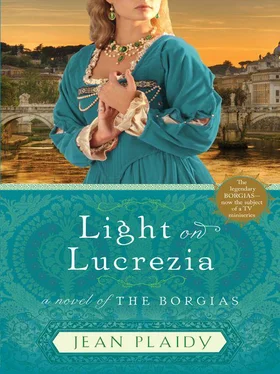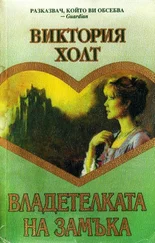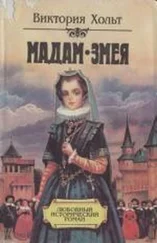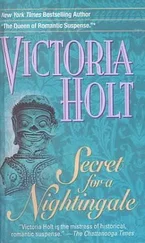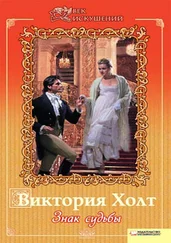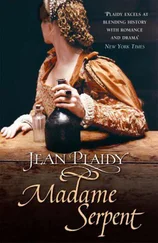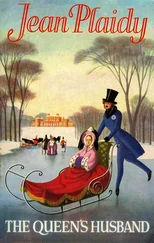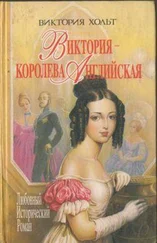Виктория Холт - Light on Lucrezia
Здесь есть возможность читать онлайн «Виктория Холт - Light on Lucrezia» весь текст электронной книги совершенно бесплатно (целиком полную версию без сокращений). В некоторых случаях можно слушать аудио, скачать через торрент в формате fb2 и присутствует краткое содержание. Жанр: Исторические любовные романы, на английском языке. Описание произведения, (предисловие) а так же отзывы посетителей доступны на портале библиотеки ЛибКат.
- Название:Light on Lucrezia
- Автор:
- Жанр:
- Год:неизвестен
- ISBN:нет данных
- Рейтинг книги:4 / 5. Голосов: 1
-
Избранное:Добавить в избранное
- Отзывы:
-
Ваша оценка:
- 80
- 1
- 2
- 3
- 4
- 5
Light on Lucrezia: краткое содержание, описание и аннотация
Предлагаем к чтению аннотацию, описание, краткое содержание или предисловие (зависит от того, что написал сам автор книги «Light on Lucrezia»). Если вы не нашли необходимую информацию о книге — напишите в комментариях, мы постараемся отыскать её.
Light on Lucrezia — читать онлайн бесплатно полную книгу (весь текст) целиком
Ниже представлен текст книги, разбитый по страницам. Система сохранения места последней прочитанной страницы, позволяет с удобством читать онлайн бесплатно книгу «Light on Lucrezia», без необходимости каждый раз заново искать на чём Вы остановились. Поставьте закладку, и сможете в любой момент перейти на страницу, на которой закончили чтение.
Интервал:
Закладка:
Jean Plaidy
Light on Lucrezia
AUTHOR’S NOTE
A fter delving into the lives of the Borgias it is difficultto understand why Lucrezia has been given such an evil reputation. It could have been because many of the writers of the past believed, with reason, that lurid sensationalism was more acceptable than truth. To the more intelligent reader of today, this is not so; and a bewildered girl, born into a corrupt society, struggling to maintain her integrity, is, I think, a more interesting and convincing figure than an evil and sordid poisoner.
What, I asked myself, is the solution to the enigma of Lucrezia? Did that unnatural devotion to father and brother really exist? Why was it that, when she left her family for Ferrara, she appeared to lead an almost exemplary life, and there was so little scandal about her? It is true that there were two love affairs after her marriage to Alfonso d’Este, but one of these seems to have been almost entirely platonic, while the other was carried on in the glamorous glow of secret correspondence; and considering the licentious nature of the times, such affairs would not be considered of any special significance. Where was the evil poisoner—depicted in such works as the Donizetti opera—hiding in this serene and gentle girl?
So I have thrown this light on Lucrezia and what I have found is set out in this book.
In my search for the true Lucrezia I have been considerably helped by the undermentioned works.
An Outline of Italian Civilization . Decio Pettoello, Ph.D.
History of the Italian Republics in the Middle Ages . J. C. L. Sismondi. (Recast and supplemented in the light of historical research by William Boulting.)
France . William Henry Hudson.
The Old Régime in France . Frantz Funck-Brentano.
The Life and Times of Lucrezia Borgia . Maria Bellonci. Translated by Bernard Wall.
Lucrezia Borgia. A Chapter from the Morals of the Italian Renaissance . Ferdinand Gregorovius.
The Marriage at Ferrara . Simon Harcourt-Smith.
Lucrezia Borgia . Joan Haslip.
Alma Roma . Albert G. MacKinnon, M.A.
Hadrian the Seventh . Fr. Rolfe (Frederick Baron Corvo).
Isabella d’Este, Marchioness of Mantua, 1474-1539, A Study of the Renaissance . 2 Vols. Julia Cartwright.
Lucretia Borgia, The Chronicles of Tebaldeo Tebaldei, Renaissance Period . Algernon Swinburne, with commentary and notes by Randolph Hughes.
Memoirs of the Dukes of Urbino, Illustrating the Arms, Arts and Literature of Italy from 1440-1630 . 3 Vols. James Dennistoun of Dennistoun.
Cesare Borgia . Charles Yriarte. Translated by William Stirling.
Cesare Borgia . William Harrison Woodward.
The Life and Times of Roderigo Borgia, Pope Alexander VI . The Most Reverend Arnold H. Mathew, D.D.
Chronicles of the House of Borgia . Frederick, Baron Corvo.
Life of Cesare Borgia. A History and Some Criticisms . Rafael Sabatini.
J.P.
I
THE BRIDEGROOM FROM NAPLES
A t the head of the cavalcade which was travelingnorthward from Naples to Rome, rode an uneasy young man of seventeen. He was very handsome and richly dressed. His doublet was embroidered with gold and he wore a necklace of rubies; those who rode with him showed a deep respect when they addressed him, and it was obvious that he was of high rank.
Yet his mood was reflected in his followers who did not sing or shout to one another as they habitually did; there was among them an atmosphere of reluctance, almost of dread which indicated that although they rode steadily on, they were longing to go back along the road they had come.
“We cannot be far from Rome now,” the young man called to a member of his guard.
“Less than a day’s ride, my lord,” came the answer.
The words seemed to echo through the company like a distant rumble of thunder.
The young man looked at his men, and he knew that there was not one of them who would wish to change places with him. What did they whisper to one another? What was the meaning of their pitying glances? He knew. It was: Our little Duke is riding straight into the net.
Panic possessed him. His fingers tightened on the reins. He wanted to pull up, to address them boyishly, to tell them that they were not going to Rome after all; he wanted to suggest that as they dared not return to Naples they should form themselves into a little band and live in the mountains. They would be bandits. The King of Naples would be their enemy. So would His Holiness the Pope. But, he would cry, let us accept their enmity. Anything is preferable to going to Rome.
Yet he knew it was useless to protest; he knew that he must ride on to Rome.
A few monthsago he had had no notion that his peaceful life would be disturbed. Perhaps he had stayed too long in childhood. It was said that he was young for his seventeen years. Life had been so pleasant. He had hunted each day, returning at night with the kill, pleasurably exhausted, ready to feast and sleep and be fit for the next day’s hunting.
He should have known that a member of the royal house of Aragon could not go on indefinitely leading such a pleasant but, as his uncle the King would say, aimless life.
There had come that day when he had been summoned to the King’s presence.
Uncle Federico had welcomed him in his jovial way and had been unable to suppress his smiles, for he was fond of a joke; and what he had to tell his nephew seemed to him a very good one.
“How old are you, Alfonso?” he had asked. And when Alfonso had told him, he had continued to smile. “Then, my boy,” he cried, “it is time you had a wife.”
There had been nothing very alarming in that statement. Alfonso had known that he would soon have a wife. But Uncle Federico, the joker, had not told all. “You are not sufficiently endowed, my nephew, to satisfy the bride I have in mind for you,” he went on. “Oh no! A bastard sprig, even of our noble house, is not good enough. So we shall ennoble you. Alfonso of Aragon, you shall be Duke of Bisceglie and Prince of Quadrata. What say you to that?”
Alfonso had declared his delight in his new titles. But he was eager, he said, to know the name of his bride.
“All in good time, all in good time,” murmured Federico, as though he wanted to keep the joke to himself a little longer. Alfonso remembered, although he had only been a very little boy at that time, how Uncle Federico—not King then but only brother of the King—had come to Naples from Rome and told how he had stood proxy for Alfonso’s sister Sanchia at her marriage with Goffredo Borgia, and how he had amused the company vastly—and in particular the Pope—by his miming of a reluctant virgin as the bride. As all knew that Sanchia had been far from a reluctant virgin for quite a long time before her marriage to little Goffredo, that was a great joke; it was the sort of joke which Uncle Federico, and doubtless others, reveled in.
Alfonso then wondered whether it was a similar joke which was now amusing his uncle.
“You are seventeen,” said Federico. “Your bride is a little older, but only a little. She is eighteen, nephew, and reputed to be one of the loveliest girls in Italy.”
“And her name, sire?”
Federico had come close to his nephew and put his mouth to his ear. “Nephew,” he said, “Duke of Bisceglie and Prince of Quadrata, you are to marry His Holiness’s daughter, Lucrezia Borgia.”
From the momenthis uncle had spoken the dreaded name Alfonso had known no peace. There had been many evil rumors concerning that family, and his future bride had not escaped them. All feared the Pope. It was said that he was possessed of supernatural powers, and this must be so for at sixty-seven he had the vigor of a young man. His mind was alert and cunning as it had ever been; and it was rumored that his mistresses were as numerous as they had been in the days of his youth. But it was not the Pope’s vigor or diplomatic skill which was to be feared.
Читать дальшеИнтервал:
Закладка:
Похожие книги на «Light on Lucrezia»
Представляем Вашему вниманию похожие книги на «Light on Lucrezia» списком для выбора. Мы отобрали схожую по названию и смыслу литературу в надежде предоставить читателям больше вариантов отыскать новые, интересные, ещё непрочитанные произведения.
Обсуждение, отзывы о книге «Light on Lucrezia» и просто собственные мнения читателей. Оставьте ваши комментарии, напишите, что Вы думаете о произведении, его смысле или главных героях. Укажите что конкретно понравилось, а что нет, и почему Вы так считаете.
